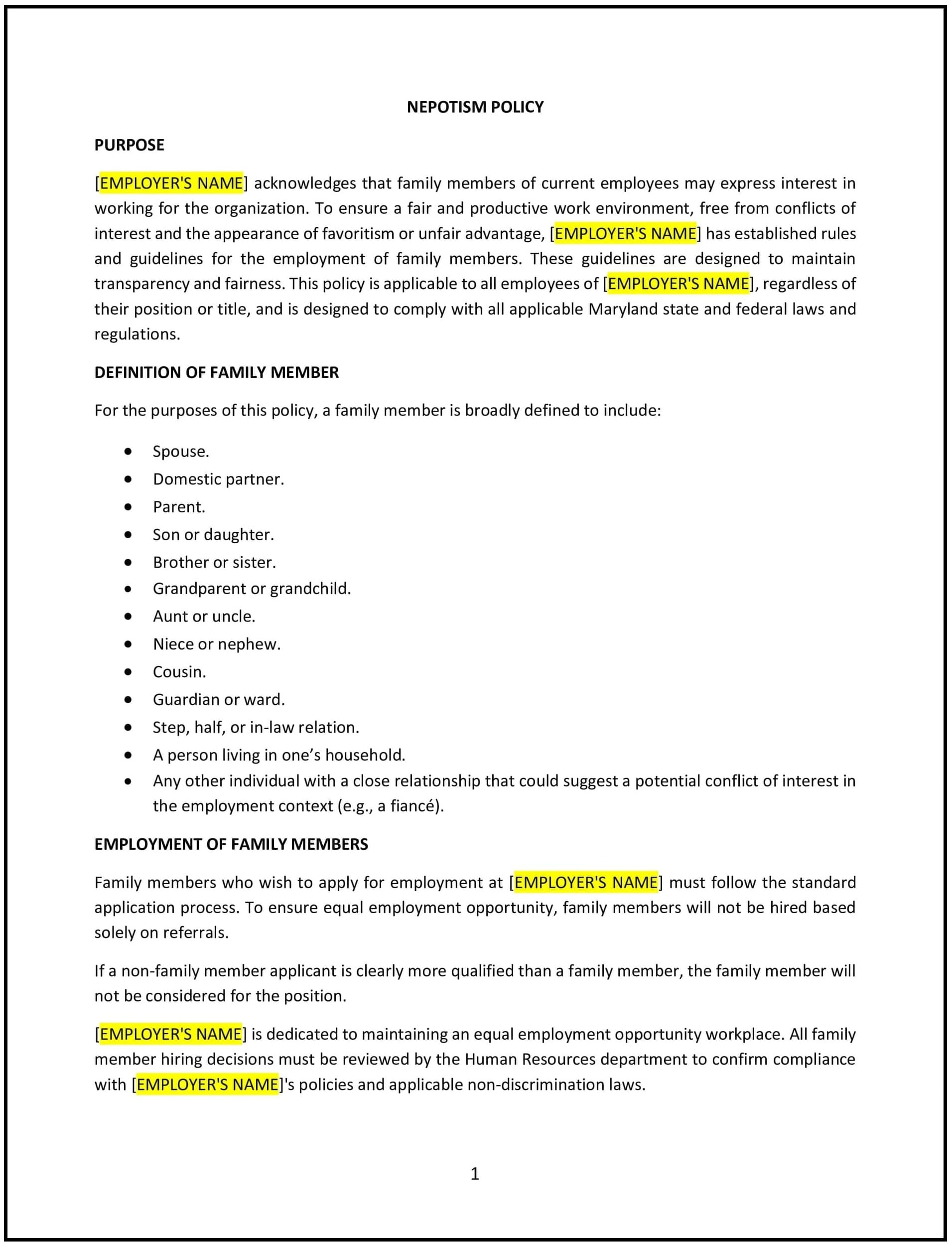Got contracts to review? While you're here for policies, let Cobrief make contract review effortless—start your free review now.

Customize this template for free
Nepotism policy (Maryland)
This nepotism policy is designed to help Maryland businesses prevent conflicts of interest and promote fairness in hiring, supervision, and workplace relationships. It establishes guidelines for managing situations where employees have familial or close personal relationships to ensure transparency and equity.
By adopting this policy, Maryland businesses can maintain a professional work environment, reduce potential biases, and protect the integrity of decision-making processes.
How to use this nepotism policy (Maryland)
- Define nepotism: Specify what constitutes nepotism, such as favoritism in hiring, promotions, or management decisions involving family or close personal relationships.
- Outline disclosure requirements: Require employees to disclose familial or personal relationships that could affect workplace decisions.
- Address supervisory roles: Prohibit employees from being in direct supervisory or reporting relationships with family members or close associates.
- Establish hiring practices: Ensure hiring decisions are based on merit and conducted through transparent and competitive processes.
- Provide conflict resolution procedures: Detail how to handle potential conflicts of interest arising from workplace relationships.
- Include exceptions: Specify circumstances, if any, under which exceptions to the policy may be granted, such as for small businesses with limited staffing options.
- Reflect Maryland-specific considerations: Address any state laws or cultural factors that may influence workplace relationships and decision-making.
Benefits of using this nepotism policy (Maryland)
Implementing this policy provides Maryland businesses with several advantages:
- Promotes fairness: Ensures decisions about hiring, promotions, and assignments are based on merit, not personal connections.
- Reduces conflicts of interest: Prevents biases and favoritism that could disrupt workplace dynamics.
- Enhances transparency: Encourages open communication about personal relationships in the workplace.
- Protects morale: Maintains employee trust by fostering a perception of equity in workplace practices.
- Reflects Maryland standards: Aligns with state-specific laws and business norms regarding workplace ethics.
Tips for using this nepotism policy (Maryland)
- Communicate the policy: Share the policy during onboarding and regularly remind employees of its importance.
- Train managers: Provide training on recognizing and addressing potential conflicts of interest related to personal relationships.
- Monitor hiring practices: Ensure hiring and promotion processes are transparent and merit-based.
- Foster open dialogue: Create a safe environment for employees to disclose relationships without fear of retaliation.
- Review regularly: Update the policy to reflect changes in Maryland laws, workplace practices, or organizational needs.